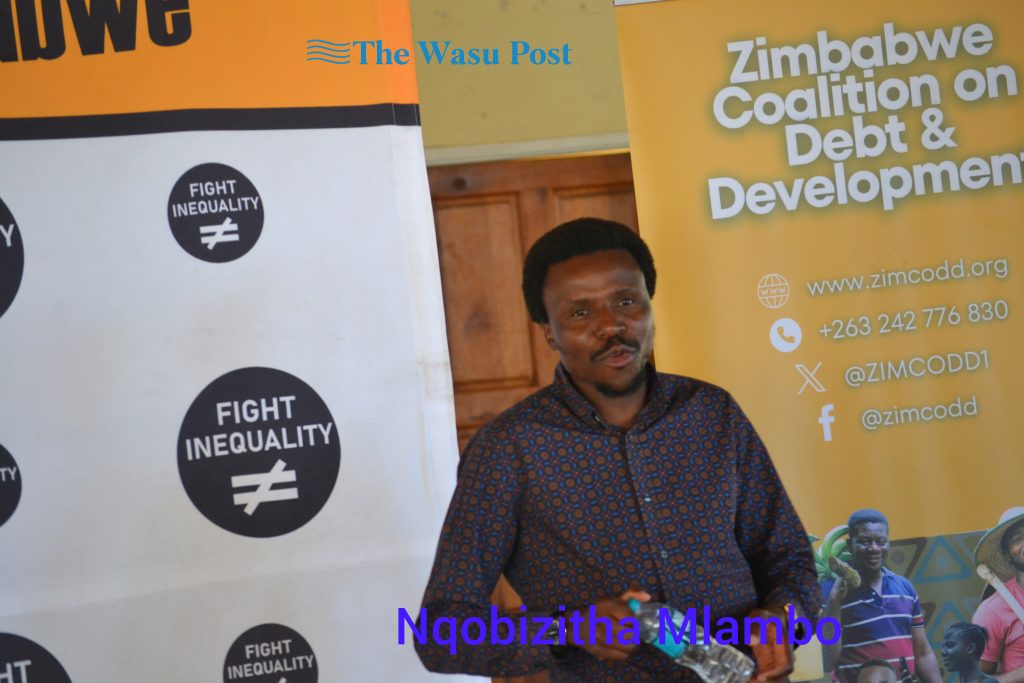By Fanuel Chinowaita

MUTARE – The Fight Inequality Alliance Zimbabwe (FIAZIM) has intensified its campaign for stronger wealth taxation, saying the government must target the super-rich to reduce the widening gap between the rich and the poor.
Speaking at a program held in Mutare yesterday, which FIAZIM organised together with the Zimbabwe Coalition on Debt and Development (Zimcodd), National Coordinator Nqobizitha Mlambo said the country can no longer afford to let inequality deepen while public services remain underfunded.
“We see people splashing money and luxury cars on social media while cleaners and truck operators in local councils survive on meagre wages,” Mlambo said.
“If the super-rich are taxed fairly, the country can fund healthcare, free education, safe water, streetlights, and other basic services that ordinary citizens deserve.”
Mlambo highlighted that Mutare once thrived on industries such as Karina Textiles and Mutare Board and Paper Mills, which employed thousands of residents, but their collapse has left many families struggling.
He urged government to channel resources toward re-industrialisation to create jobs and revive the local economy.
During the event, residents of Mutare voiced frustrations over poor public services. They cited Sakubva Clinic’s lack of resources, the high cost of education, and the absence of decentralisation in service delivery.
“Even for something as basic as clearing fingerprints, we are forced to travel to Harare. This makes life more difficult for already suffering people,” one participant said.
Zimbabwe currently allocates about 10.2% of its budget to healthcare, below the 15% target under the Abuja Declaration, and a similar shortfall exists in education. FIAZIM is calling on citizens to demand compliance with these international commitments during the upcoming 2026 national budget consultations.
The group, part of a global movement of activists, trade unions and human rights defenders, also pressed for debt relief, accusing government of servicing “illegitimate debts” such as compensation to former white commercial farmers while ordinary citizens go without basic services. Zimbabwe’s public debt stands at US$21.5 billion, according to the Ministry of Finance.
“Forty-five years after independence, darkness still covers our towns and villages because there are no streetlights,” Mlambo said. “It’s a shame. Wealth taxation is the path to equality and dignity for Zimbabweans.”
